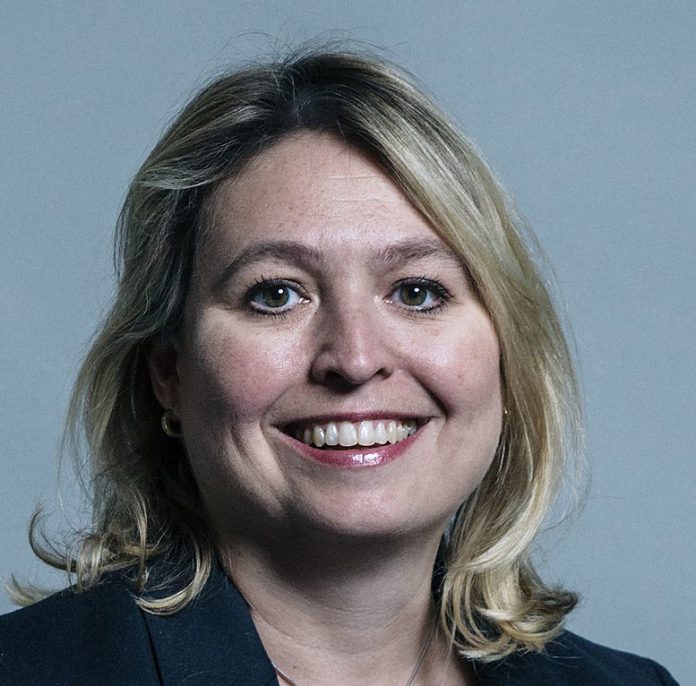A local MP has said she campaigned “proudly” about the level of UK overseas aid, and that it should not be cut.
The UK’s annual aid budget has been reduced from 0.7% to 0.5% of national income, reportedly as a temporary measure, and opponents of the cuts are calling for them to be reversed.
And in a debate on the matter in Parliament recently, Moorlands MP Karen Bradley said it was all a matter of “keeping our promises”.
She told MPs: “I proudly stood on a manifesto that talked about ‘proudly’ keeping to 0.7%. There are some who think that this is a ruse to introduce 0.5% by the back door. I really hope that that is not the case.”
The Government has said it will revert to 0.7% when the economic situation allows but Mrs Bradley asked: “When will that be? When can we have a vote on this matter? When can we know that we will meet our commitments? The organisations, the programmes and the people who depend on that money need to know that it is coming.”
She said that “if the pandemic has shown us one thing”, it was that “we cannot isolate ourselves from what happens in the rest of the world”.
She told MPs: “No matter how much we might want to turn our backs on the sea and look inwards, we cannot. Variants that developed in far-flung parts of the world, and a virus that developed in a far-flung part of the world in a city that most people probably had not heard of a year ago, have meant that our way of life has changed fundamentally this year.
“We cannot isolate ourselves from the rest of the world; we have to take an active role.”
She said that a small amount of money, relatively speaking, helped to stop refugees travelling in boats on the channel. It also helped to stop victims of slavery producing the goods that were sold in supermarkets and retailers, and it meant that girls would get 12 years of education.
She said: “In the week of the G7 and in the year of COP26, this is the time for the United Kingdom to stand with our head held high, show that we meet our global commitments and lead the world.”
She said that while it was “an exceptional time” there were still organisations that needed certainty about their funding from the United Kingdom.
She said: “(Theresa) May talked about the Global Fund to End Modern Slavery. I, too, have spoken to the Global Fund, which has seen an 80% cut in its spending.
“It will get by, by going to other countries, but if it does not know that we in the United Kingdom will meet our commitments, it will have to close programmes, and that will leave thousands and thousands of children at risk of exploitation.”
She went on: “We are surrounded by sea. If we are surrounded by sea, we have a choice. We can turn our back to the sea and look inwards; we can look only at the people in our own country, our own town or perhaps even our own village. I think that makes us smaller and poorer.
“Alternatively, we can turn round and face the sea. We can face the world. We can be part of a global nation. I think that makes us wealthier, it gives us a better quality of life, and it makes us better as a country.”
The debate on the 0.7% official development assistance target was opened by Conservative MP Andrew Mitchell who said that he was being described as a rebel but told MPs: “It is the Government that is rebelling against its clear and indisputable commitments.
“A short perusal of yesterday’s order paper shows that we have among our number eight select committee chairs, four distinguished former select committee chairs, 16 former ministers, 12 privy counsellors and four knights of the realm. We are supported by every former prime minister and, I believe, by every former leader of all four major political parties.
“Over the weekend, the Archbishop of Canterbury said: ‘The foreign aid cut is indefensible…Let us…pray that it is reversed’”
Foreign aid has been increasing over the years, in line with a commitment to meet a target of spending 0.7% of total national income.
The promise to meet the UN-backed target dates back to the 1970s and was made law in 2015.
Last year, foreign aid spending fell for the first time in about a decade, although it still met the 0.7% target because the overall economy shrank due to the pandemic.
In November, the Government announced as part of its spending review that it would reduce aid spending to 0.5% of national income due to the difficult economic situation.
Several countries exceeded the UN aid target of 0.7% in 2020, including Denmark (0.73%), Norway (1.11%) and Sweden (1.14%).
The bulk of UK overseas spending in 2020, just over half, was in the Africa region and used for bilateral aid. Just under 39% was spent on bilateral aid for Asia, with smaller amounts going to other parts of the world. Government figures for 2019 show that Pakistan was the top recipient that year of bilateral aid, followed by Ethiopia, Afghanistan, Yemen, Nigeria, Bangladesh and Syria.
The BBC reported that the UN’s family planning agency will lose about 85% of its funding from the UK, a drop of about £130m.
“These cuts will be devastating for women and girls and their families across the world,” the agency said in a statement. Unicef will see its funding reduced by about 60%.
The World Health Organisation’s Global Polio Eradication Initiative will lose nearly all its UK funding.
In Yemen, the UK’s commitment to relief efforts for 2021 has gone down to £87.2m from the £139.1m that was pledged in 2020. In Pakistan, the bulk of the money is spent on poverty reduction programmes, education, managing water resources, health and other humanitarian initiatives.
According to the International Rescue Committee, the cuts will have an impact on education, and nearly 11,000 girls in rural Pakistan may not attend school if the funding stops.



